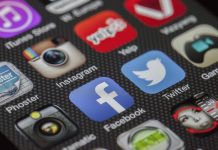
The National Health Service (NHS) is targeting 80% of smartphone users in the UK for a contact tracing app could help fight the coronavirus pandemic.
The NHS will try to target 80% of the current smartphone owners for its contact tracing app to help stop the coronavirus pandemic. To simulate the impact of the app, the University of Oxford's Big Data Institute modeled a city of one million.
Researchers pointed out that even though uptake of the app would be lower, it will still help slow down the spread of Covid-19. They also mentioned that allowing people to self-diagnose the illness could be critical.
This refers to the process of answering an on-screen questionnaire before being judged to be at significant risk of infection without the need to speak to a health adviser or wait for a medical test result.
Professor Christophe Fraser said: "There would be more people receiving notifications as a result of false warnings."
"But actually, it results in fewer days of people in self-isolation and quarantine, because the effect of suppressing the epidemic more quickly outweighs the risks in waiting for a test before the notification," Prof. Fraser pointed out.
The Oxford University model
The academics from the university were composed of epidemiologists and ethicists advising NHSX, the health service's digital innovation unit. They were not involved in the design and development of the app but they advise on what basis the contact-tracing app should be created.
The model examines different age groups, household structures and movement patterns to try to maximize the number of people who could be allowed to freely move about once a contact-tracing app has been launched.
Fraser mentioned: "We're looking at introducing the app towards the end of lockdown. When you install it, it needs a few days to start recording data before it can be fully functional."
The contact tracing app's target
According to the team, around 56% of the general population must use the app in order to stop the outbreak, which according to Prof. Fraser equates to 80% of all existing smartphone owners, based on data from Ofcom.
He admitted: "That's a very ambitious target. It's not something that would typically happen for a new app - even an incredibly popular one - but if we can explain that this is a public health intervention, that will be new and different."
"Some of my colleagues have... commissioned large surveys in multiple European countries including the UK. More than 80% of people surveyed said they were likely to or would install this app when it was explained in detail what it would be doing," Fraser added.
While the Oxford team suggests that use of the app should be voluntary, this could prove to be challenging.
Singapore became one of the first countries to deploy a voluntary contact-tracing app through the introduction of TraceTogether on March 20. However, only approximately 12% of users installed it.
This government was eventually forced to implement a lockdown on April 7 following a spike in new cases.
Another obstacle to achieving the target number of users is the fact that a small number of phones still in use in the country do not support the Bluetooth Low Energy system required to run the app.
Prof. Fraser said government officials are discussing whether to provide smartphones to those without or cheaper, wearable Bluetooth devices in order to boost the number of citizens involved.






